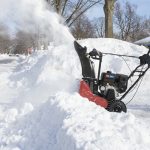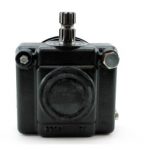*PLEASE NOTE: Some areas and regions have extremely strict policies on rain water harvesting or capturing and storing rain water where as other areas and regions it is ILLEGAL to harvest rainwater. PLEASE check with your STATE and LOCAL GOVERNMENT (County/Town) concerning LAWS and REGULATIONS for RAINWATER HARVESTING in your region prior to attempting to set up ANY RAINWATER HARVESTING type systems.
So, once again it’s time to water the lawn and garden. Most people would screw one end of a hose on to the water spigot attached to the outside of the house and connect the other end of the hose to a sprinkler. Turn the knob on the spigot and water supplied by the municipality flows through the hose into the sprinkler and then gets sprayed out on to the lawn or garden. If you prefer to water the lawn and garden yourself, then you would attach some kind of nozzle at the end of the hose causing the water to spray out a wider pattern and you control where you want the water to go.
In this case, you are relying on the municipality to supply you with water. It sounds simple enough, but you’re actually paying for it. Moreover, if your town is experiencing a water shortage or drought, then you may not get any water at all.
Some people do not like to rely on others to supply them with their water needs. Moreover, they just don’t like paying for something that should actually be free. These same people are also concerned with reducing their environmental footprint and do what they can to lessen adverse influences on the planet. They notice that during rainstorms the water runoff from the roof and gutters of their homes as well as sloping ground on their property washes into streets and winds up in the sewer system with debris, silt and trash it picks up on the way. This mess ends up in lakes, streams and rivers.

If enough people harvested rainwater it could reduce the possibility and damage caused by flash floods in neighborhoods. (Courtesy: Karina Schuh at flickr.com)
Studies have found that on average most households require about 70 percent of their water to deal with outdoor needs –- the garden, the lawn, washing down the driveway. This water does not have to be potable. In short, the water doesn’t have to come from the plumbing system. Instead, you could harvest rain to supply all of your outdoor water needs.
It has been estimated that water saved from harvesting rainwater can replace up to 80 percent of a household’s non-potable water needs.
In addition, harvesting rainwater can save you a bit of money. For example, a report from the Natural Resources Defense Council guesses that cities could save as much as millions of dollars a year if they harvested rain to help fill their residents water needs. Studies have shown that Denver, Colorado could save as much as $4.4 million a year; Austin, Texas could save more than $9.5 million annually; Washington, D.C. could save about $14.3 million; and Atlanta, Georgia could save nearly $25.9 million.
Replacing municipality water with harvested rainwater also offers direct benefits. For example, it could cut as much as 50 percent to 60 percent off the amount of your water bill a month.
Finally, harvesting rain can help reduce soil erosion because the captured rainwater will not be running off. Depending on the intensity of the rainfall that could reduce or illuminate flash floods in a neighborhood.
(Next time: How to harvest rain)





